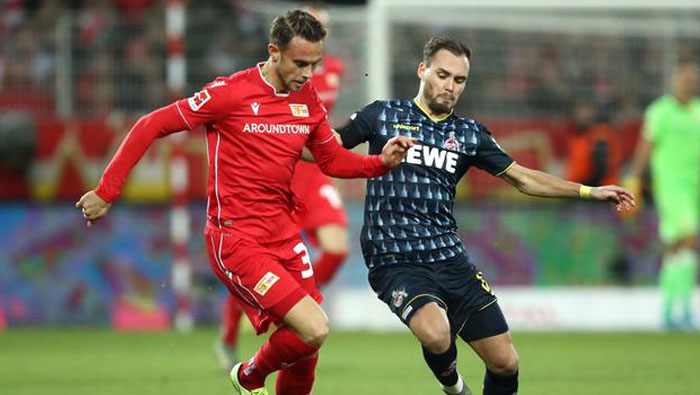
Berlin: "Health first, then football." The words of Cologne midfielder Birger Verstraete are a timely reminder that while football is an enormous world full of business, power and social importance, it is also a game played by people.
On May 1, Cologne announced that three members of staff - thought to be two players and a physiotherapist — had tested positive for the coronavirus. Verstraete later revealed to Belgian TV that he had been treated for weeks by the physio in question and that he had worked out with one of the players who tested positive as recently as the day before testing. The three were symptom free and were naturally put into quarantine for two weeks.
Verstraete's girlfriend suffers from a heart condition, putting her in an at-risk group. "The health of my family, girlfriend, everyone, actually, is paramount," he said. "It is not up to me to decide what to do with the Bundesliga, but I can say that my head is not on football."
The following day, Cologne released a statement attempting to clarify some aspects of the interview they felt were misrepresented. Verstraete also released a statement, saying: "Instead of giving an interview out of emotion, I should have contacted our doctor and had my questions answered." The player also added that his girlfriend was heading home to Belgium "for the time being."
People then players
The truth of the situation remains unclear. What is clear is that players are concerned. That's because players are not just promising defensive midfielders, they're also human beings. Their great financial means and privileged life may make handling some aspects of this situation easier, but as the emotional words of Verstraete's first interview reveal, he is not free of concern or fear.
And there's nothing wrong with that. In fact, it's completely natural given the widespread unease about the future. Germany's handling of the coronavirus up until this point has put them in a strong position to recover, but the situation remains fragile for everyone. Verstraete's words are a reminder that the resumption of football should be approached with consideration for those actually playing it and their families in mind.
Germany's plans to see the Bundesliga restart in May have been discussed for weeks on end. DFL (German football league) CEO Christian Seifert has held many press conferences. Doctor Tim Meyer, head of the medical task force, has outlined plans for how training and games during the coronavirus might look. Club's sporting directors and chairman have spoken about the financial concerns and the future of clubs. Some minister presidents have given voice to the situation. On Sunday. Even Germany's Interior Minister Horst Seehofer chimed in, offering his support for a restart.
These views are all to be expected and, in some cases, also necessary. But they are not the voices of those playing, not the voices of those being asked to risk their health and that of their families. What of those in socially distanced training sessions or playing games behind closed doors?